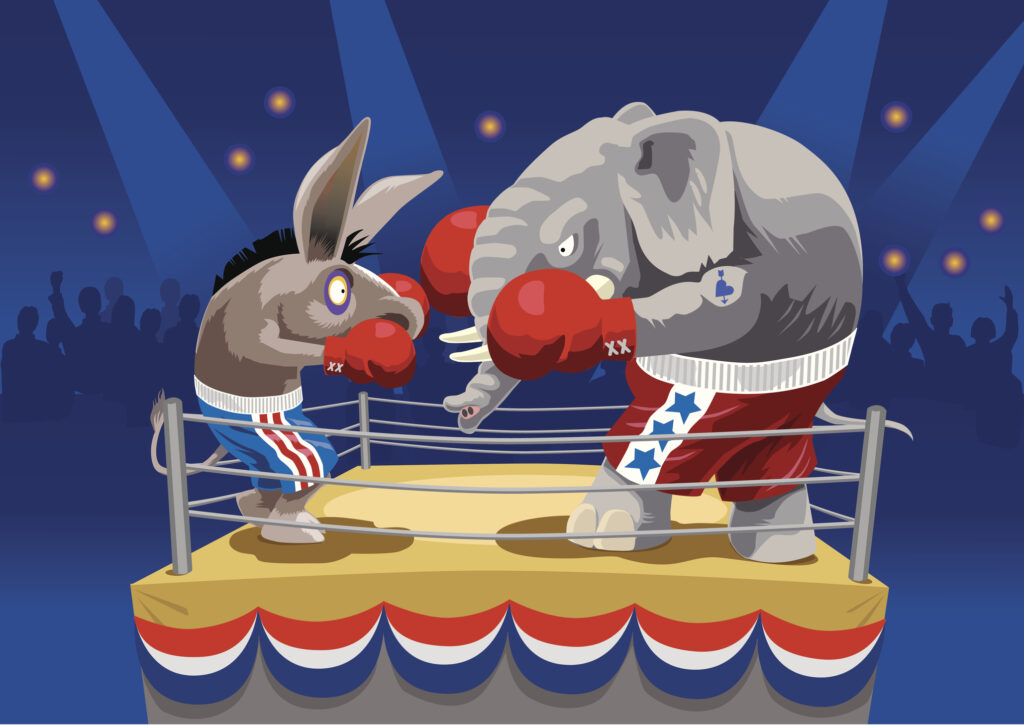This could be the most crucial year for global democracy in recent memory, with nearly half the world's population due to vote in major elections in the UK and France early next month.
For most of us, the November presidential election is top of mind. If you're feeling anxious, you're not alone. Here in Hawaii, far from the battleground states that will decide the outcome of the race between President Joe Biden and Republican challenger Donald Trump, it can feel disempowering.
According to a recent NPR/PBS News/Marist poll, Biden and Trump are both receiving the support of 49% of likely voters, with two-thirds of voters saying they have made up their mind. The close race has brought renewed attention to battleground states like Pennsylvania, Nevada and Arizona, where both parties are pouring significant funds. To date, the presidential candidates have raised more than $578 million in campaign funds.
The stakes are high, not just for the presidential race, but for the Senate, Congress and state legislatures. Both parties are running massive ground operations to mobilize undecided voters, using sophisticated data analytics and grassroots mobilization. The Democratic and Republican National Committees are conducting extensive voter outreach.
In contrast, Hawaii's political climate is unusually calm. The state has a historically low number of candidates running for office, most incumbents face no significant challengers, the congressional delegation appears stable, and some state legislative candidates are unbeatable.
Given Hawaii’s political calm, it’s easy to feel detached from the national turmoil. At the same time, for many, including me, anxiety about national politics can be paralyzing. The problems seem so far away and insurmountable, leading to feelings of helplessness. But apathy and anxiety both lead to inaction, which is harmful in times like these.


Hawaii Democrats are turning their fears into action. Local Democratic efforts include letter writing in battleground states, with a recent focus on Pennsylvania. Plans are underway to send a team from Hawaii to Nevada to help in person, as well as virtual phone and text banks later this year.
“I do believe there is a sense of anxiety motivating Democratic voters,” said Hawaii Democratic Party Chairman Derek Tarvin. “We truly believe this election is about democracy, and given the risks posed by other candidates, it is essential that President Biden be re-elected. This general sense of anxiety has galvanized many in our local Democratic Party to get involved and support our work in battleground states on the mainland.”
Hawaii Republican Party Chair Tamara MacKay takes a different view.
“In the wake of the (Trump) trial in New York and Joe Biden's failed policies, Hawaiians are eager to elect Donald Trump President and save America,” MacKay said, referring to Trump's recent felony conviction. “This enthusiasm is evidenced by the fact that the number of (Hawaii voters) who supported Trump in the Republican presidential primary was more than three times the number who supported Biden in the Democratic primary.”
McKay said the Hawaii Republican Party is working closely with the Trump campaign and the Republican National Committee through a grassroots organizing program called “Trump Force 47,” which aims to mobilize targeted voters in key districts in battleground states through mail, phone calls and text banking.
Both parties believe the country is facing an existential crisis and have stressed the importance of local involvement in national elections.
Tarvin expects this year's presidential election to be even closer than 2020. “That's why every vote counts.”
McKay said the Hawaii GOP's efforts are a testament to the growing political participation of Republicans in the state, and he encourages all voters to get involved and informed in grassroots efforts that can shape the political landscape across the nation.
Regardless of your political leanings, there are plenty of things you can get involved in. Political participation gives you a sense of purpose and agency and has been shown to reduce anxiety. If you're one of the 57% of Americans who feel anxious about the upcoming election, consider taking action by writing letters, participating in a phone bank or joining a local voter registration drive.
In these uncertain times, we must remember that our contributions help shape the future of our democracy, so let's turn our fears into meaningful action.


